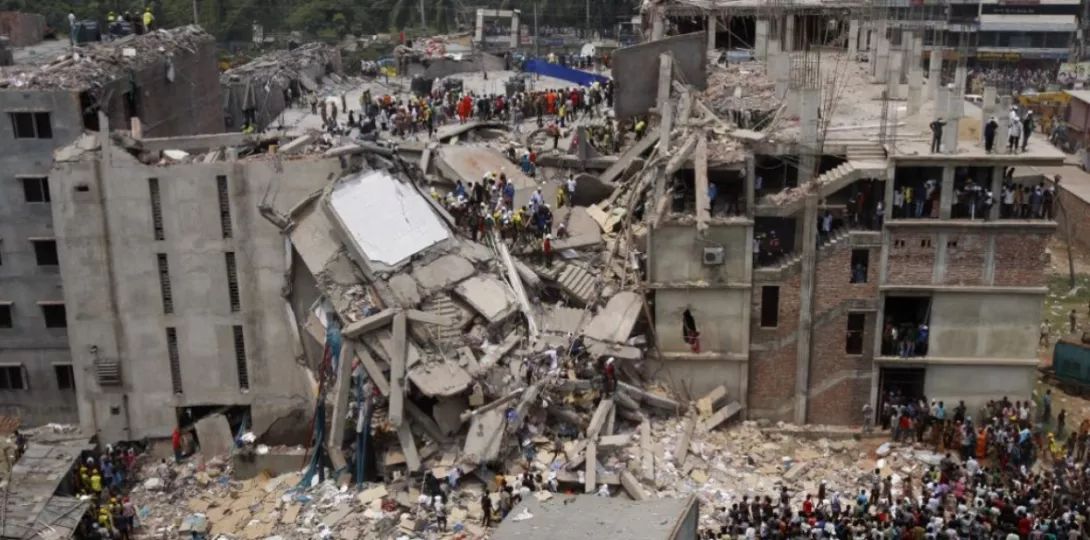The proxy war in Ukraine is heading to a denouement with the US and Russia dividing the spoils while the European powers stand bewildered by events they have been wilfully blind to, says KEVIN OVENDEN
What forces are contending to shape Bangladesh's next steps?
MOSHFIQUR NOOR reviews the different factions and their views on where the country should go after overthrowing Sheikh Hasina's regime
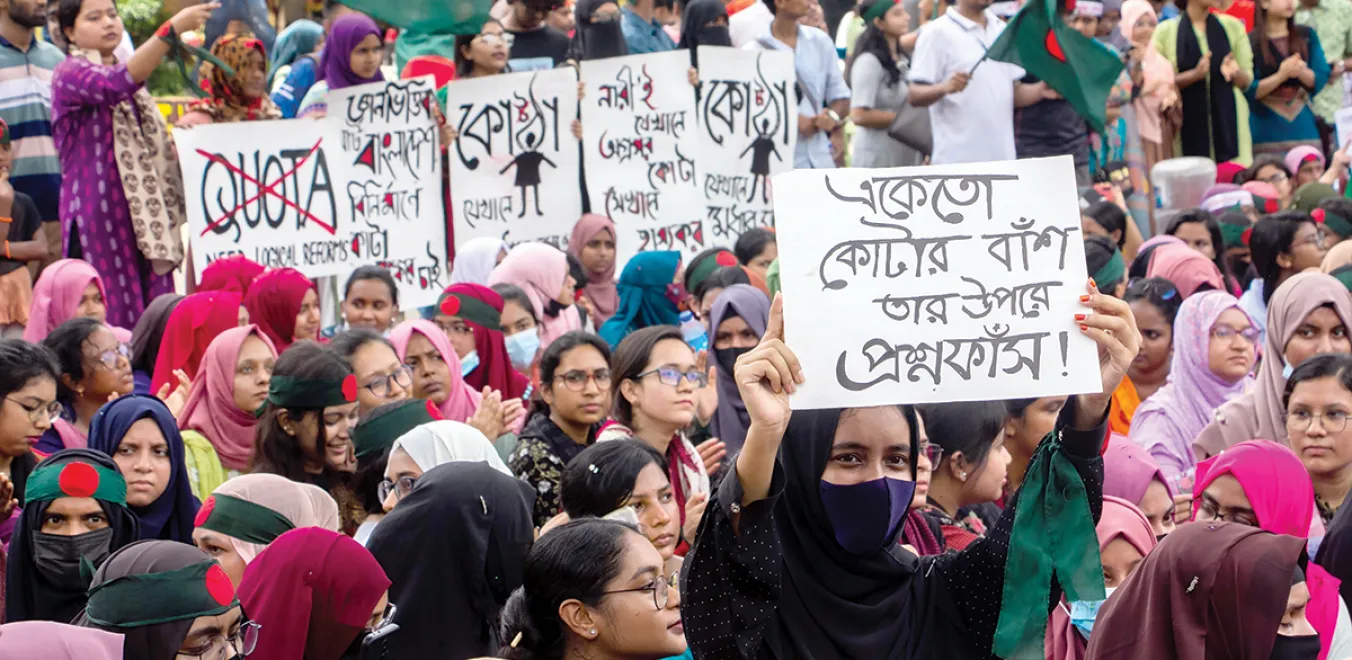
THE political situation nearly a month after the uprising in Bangladesh has generated a ferment of ideas about what to do next from a diverse range of social forces.
It has also led to demands being made on the interim government by all and sundry. All this is to be expected and reflects what has happened in other parts of the world where people’s upsurges have taken place. Let’s review the forces at work.
First, there’s an influential body of people who argue the problem of democracy in Bangladesh stems from an original sin in the constitution. The enactment of the constitution in 1972, written in English and then translated into Bengali, was ratified by a parliament whose members were elected in Pakistan.
More from this author
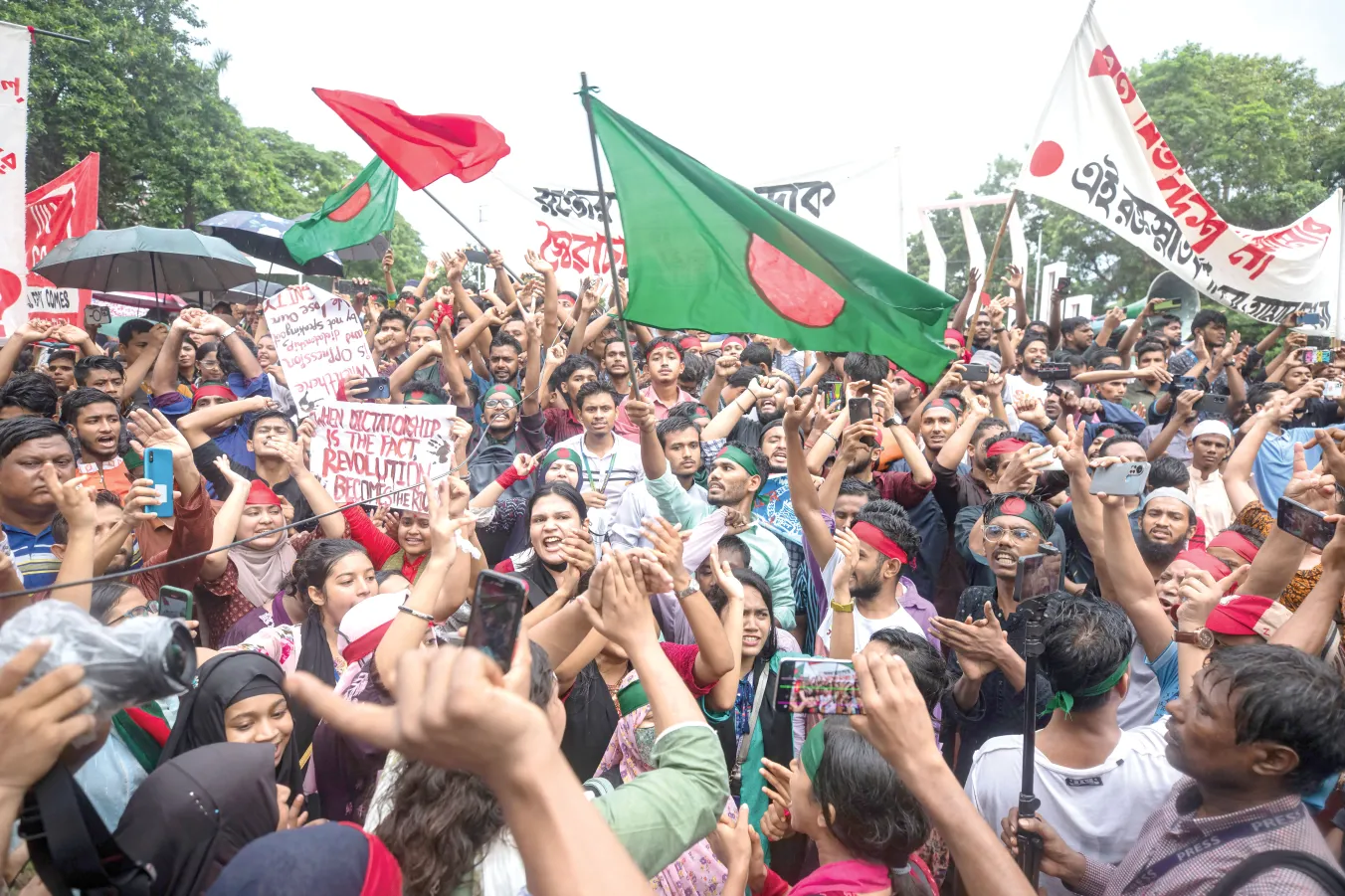
In the second article of three on the uprising, MOSHFIQUR NOOR explores whether Muhammed Yunus’s blend of NGO-led development and ‘third way’ style vagueries can satisfy a nation hungry for real change
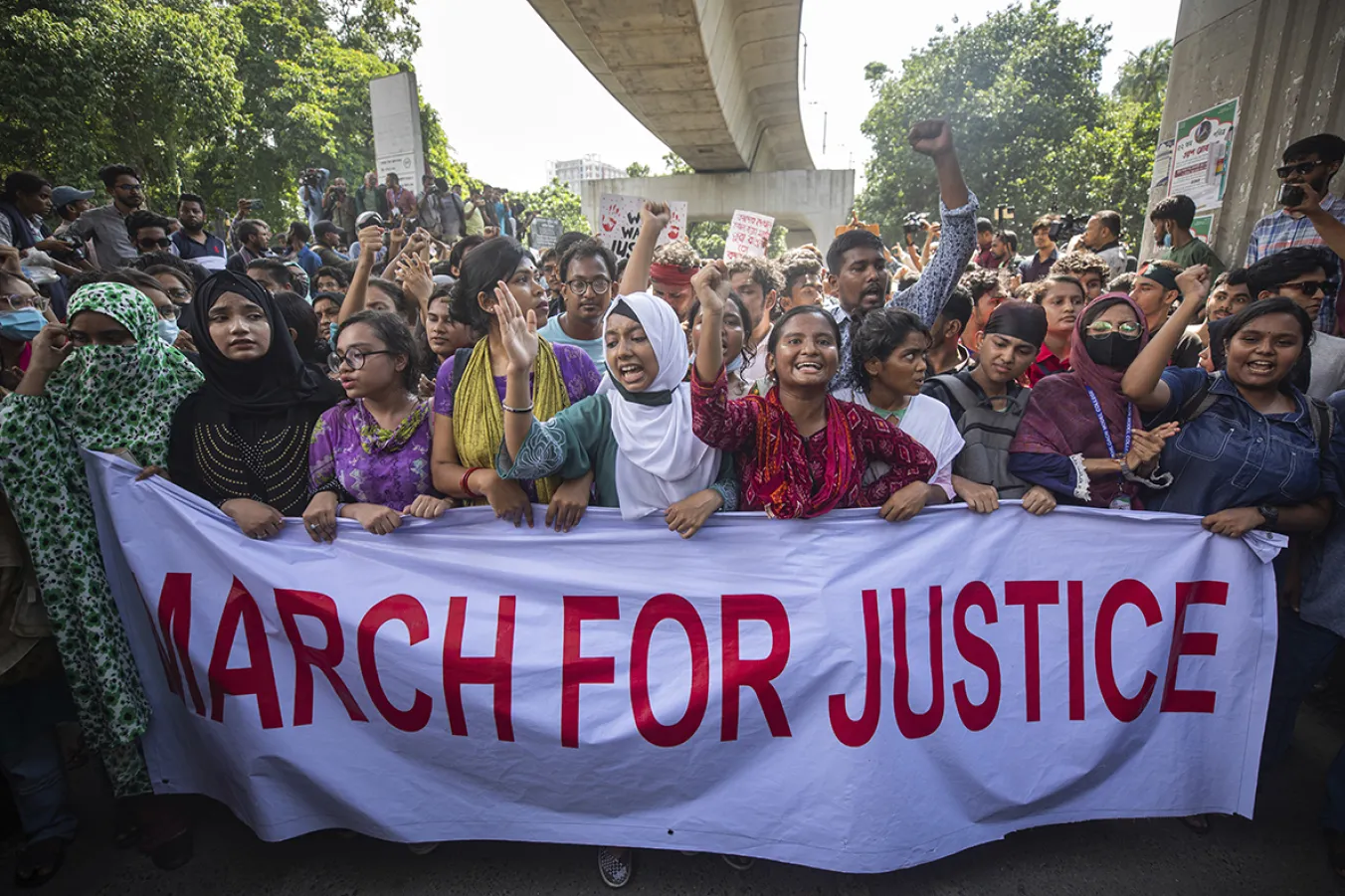
As an interim government takes shape, MOSHFIQUR NOOR examines the challenges ahead and the delicate balance between rapid reform and political stability, in the first of a three-part series
Moshfiqur Noor writes on the life of JASIM UDDIN MONDAL, the glue of continuity of the Communist Party of Bangladesh
Similar stories

NISAR AHMED analyses the likely course of events under the interim regime of Muhammad Yunus, with progressive forces attempting to ensure genuine national sovereignty, but where internal or external military intervention remain distinct possibilities

In the second article of three on the uprising, MOSHFIQUR NOOR explores whether Muhammed Yunus’s blend of NGO-led development and ‘third way’ style vagueries can satisfy a nation hungry for real change

As an interim government takes shape, MOSHFIQUR NOOR examines the challenges ahead and the delicate balance between rapid reform and political stability, in the first of a three-part series
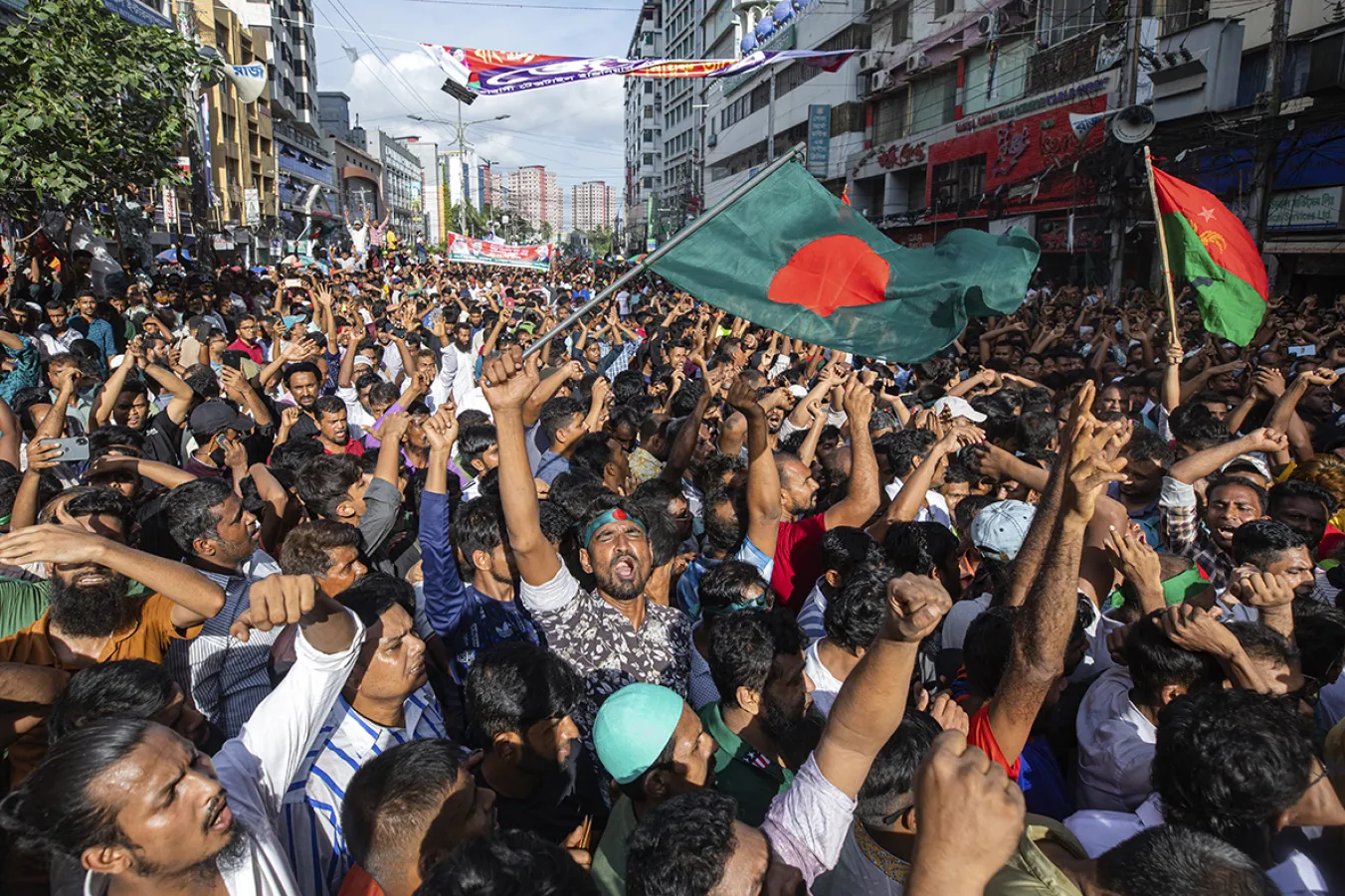
NISAR AHMED, former chair of the Bangladeshi Workers Council and long-time community activist, talks to Jamshid Ahmadi, editor of the Liberation Journal, about the momentous struggle that toppled a 15-year regime










